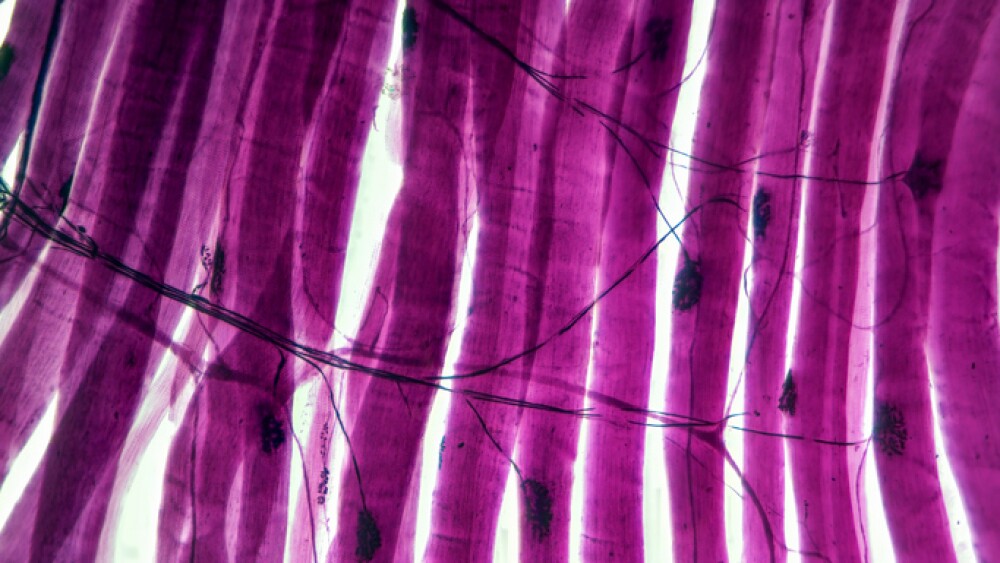- Latest results in Phase 1/2 studies show promise for two investigational treatments for patients with relapsed/refractory blood and bone marrow cancers
- Nuvisertib (TP-3654), an investigational oral small molecule highly selective PIM1 kinase inhibitor, is being evaluated in a Phase 1/2 study in patients with relapsed/refractory myelofibrosis
- Enzomenib (DSP-5336), an investigational, oral small molecule designed to inhibit the menin and KMT2A protein interaction, is being evaluated in a Phase 1/2 study in patients with relapsed/refractory acute leukemia
MARLBOROUGH, Mass., Dec. 9, 2024 /PRNewswire/ -- Sumitomo Pharma America, Inc. (SMPA) today presented new clinical data supporting further development of nuvisertib, an investigational small molecule being researched for the treatment of relapsed/refractory myelofibrosis (MF), and enzomenib, an investigational oral small molecule being researched for relapsed/refractory acute leukemia, at the 66th American Society of Hematology (ASH) Annual Meeting & Exposition.
Preliminary data presented from the ongoing Phase 1/2 study of nuvisertib monotherapy (N=74) in patients with relapsed/refractory MF show nuvisertib was well tolerated with no dose-limiting toxicities (DLTs). Preliminary data in evaluable patients showed clinical activity including spleen volume reduction (SVR25 of 22.2%), symptom reduction (TSS50 of 44.4%), and bone marrow fibrosis (47.8% patients) and hemoglobin (25% patients) and platelet count (27.6% patients) improvement. Additional data presented show nuvisertib treatment led to significant cytokine modulation (e.g. EN-RAGE, IL-18, MIP-1β, and adiponectin) over time correlating with spleen and symptom responses. The global study has been expanded to evaluate nuvisertib add-on to ruxolitinib, the first approved Janus-associated kinase (JAK) inhibitor, and in combination with momelotinib, a recently approved JAK inhibitor for MF patients with anemia, to assess safety and potential clinical activity.
New preliminary clinical and translational data from the enzomenib Phase 1/2 study were also presented at the conference by Dr. Joshua Zeidner from the University of North Carolina. The safety population included 84 total patients with acute leukemia, most of whom (94%, 79/84) had acute myeloid leukemia (AML). The study population was diverse, with 47.6% non-white (40/84), and also heavily pre-treated, with a median of 3 prior regimens.
In these patients, enzomenib was administered twice daily in continuous 28-day study cycles at dose levels from 40 mg BID up to 300 mg BID. Enzomenib was well tolerated with low overall rates of drug-related adverse events and no dose limiting toxicity (DLT) reported. Differentiation syndrome was reported in 10.7% of patients but did not result in patient deaths nor did it require permanent discontinuations of enzomenib.
Also presented were clinical activity results from the dose optimization cohorts at the dose levels of 200 mg BID and 300 mg BID. The data included results from all patients with KMT2A rearrangement (KMT2Ar) or NPM1 mutation (NPM1m) who had received at least one dose of enzomenib and who had not received a menin inhibitor previously.
In 23 patients with KMT2Ar, the Objective Response Rate (ORR) using ELN 2017 criteria was 65.2% (15/23) and the proportion to achieve CR+CRh was 30.4% (7/23). In the subset of patients with KMT2Ar to receive 300 mg BID (n = 15), the ORR was 73.3% (11/15) and CR+CR was 40% (6/15). In the 17 total patients with NPM1 mutation (NPM1m) who received 200 mg BID or 300 mg BID, the ORR was 58.8% (10/17) and the proportion to achieve CR+CRh was 47.1% (8/17). The 400 mg BID dose optimization cohort is ongoing, with 21 patients enrolled as of the clinical cut-off and data planned for presentation at a future conference.
These encouraging clinical activity results combined with an excellent safety profile suggest that enzomenib may play an important role in the treatment of patients with relapsed/refractory acute leukemia with KMT2A rearrangement or NPM1 mutation.
"These data signal growing momentum in our oncological pipeline and an important milestone in our development of new treatments for relapsed/refractory MF and acute leukemia," said Tsutomu Nakagawa, Ph.D., President and Chief Executive Officer of SMPA. "With these promising results in hand, we remain committed to advancing nuvisertib and enzomenib as we believe our investigational therapies may have the potential to improve the lives of patients living with these critical cancers who do not respond to currently available therapeutics."
MF is a rare type of blood cancer that is characterized by the buildup of fibrous tissue in the bone marrow, which can affect the production of blood cells. This buildup is caused by a dysregulation in the JAK signaling pathway. MF is a serious and rare disease with 0.7 new cases per 100,000 people worldwide each year.4
Leukemia is a type of cancer that forms in blood-forming tissue, characterized by the uncontrolled growth of blood cells, usually white blood cells, in the bone marrow. Acute leukemia, a form of leukemia, requires immediate treatment as blood cells multiply rapidly leading to a sudden onset of symptoms.1 Approximately 30% of AML patients have NPM1 mutations2 and 5-10% of AML patients have KMT2A (MLL) rearrangements.3
"Patients and families living with incurable cancers of MF and AML are in need of new treatment options – and we are encouraged by the promising clinical activity for both nuvisertib and enzomenib," said Jatin Shah, M.D., Chief Medical Officer, Oncology, SMPA. "This additional preliminary data reinforces the strong potential for PIM1 inhibition in myelofibrosis, and for menin inhibitors in acute leukemia."
About enzomenib (DSP-5336)
Enzomenib (DSP-5336) is an investigational small molecule inhibitor of the menin and mixed-lineage leukemia (MLL) protein interaction. Menin is a scaffold nuclear protein which plays key roles in gene expression and protein interactions involved in many biological pathways, including cell growth, cell cycle, genomic stability, and hematopoiesis.5,6 In preclinical studies, enzomenib has shown selective growth inhibition in human acute leukemia cell lines with KMT2A (MLL) rearrangements or NPM1 mutations.5,7 Enzomenib reduced the expression of the leukemia-associated genes HOXA9 and MEIS1, and increased the expression of the differentiation gene CD11b in human acute leukemia cell lines with MLL rearrangements and NPM1 mutation.8,9 The safety and efficacy of enzomenib is currently being clinically evaluated in a Phase 1/2 dose escalation/dose expansion study in patients with relapsed or refractory acute leukemia (NCT04988555). The FDA granted Orphan Drug Designation for enzomenib for the indication of acute myeloid leukemia in June 2022. The FDA granted Fast Track Designation for enzomenib for the indication of relapsed or refractory acute myeloid leukemia with MLLr or NPM1m in June 2024. The PMDA granted Orphan Drug Designation for enzomenib for the indication of relapsed or refractory acute myeloid leukemia with MLLr or NPM1m in September 2024.
About nuvisertib (TP-3654)
Nuvisertib (TP-3654) is an oral investigational selective inhibitor of PIM1 kinase, which has shown potential antitumor and antifibrotic activity through multiple pathways, including induction of apoptosis in preclinical models.10,11 Nuvisertib was observed to inhibit proliferation and induce apoptosis in murine and human hematopoietic cells expressing the clinically relevant JAK2V617F mutation.10 Nuvisertib alone and in combination with ruxolitinib showed white blood cell and neutrophil count normalization, and also reduced spleen size and bone marrow fibrosis in JAK2V617F and MPLW515L murine models of myelofibrosis.11 The safety and efficacy of nuvisertib is currently being clinically evaluated in a Phase 1/2 study in patients with intermediate and high-risk myelofibrosis (NCT04176198). The U.S. Food and Drug Administration (FDA) granted Orphan Drug Designation for nuvisertib for the indication of myelofibrosis in May 2022. The PMDA granted Orphan Drug Designation for nuvisertib for the indication of myelofibrosis in November 2024.
About Sumitomo Pharma
Sumitomo Pharma Co., Ltd. is a global pharmaceutical company based in Japan with key operations in the U.S. (Sumitomo Pharma America, Inc.), Canada (Sumitomo Pharma Canada, Inc.) and Europe (Sumitomo Pharma Switzerland GmbH) focused on addressing patient needs in oncology, urology, women's health, rare diseases, psychiatry & neurology, and cell & gene therapies. With several marketed products in the U.S., Canada, and Europe, a diverse pipeline of early- to late-stage assets, we aim to accelerate discovery, research, and development to bring novel therapies to patients sooner. For more information on SMPA, visit our website https://www.us.sumitomo-pharma.com or follow us on LinkedIn.
SUMITOMO PHARMA is a trademark of Sumitomo Pharma Co., Ltd., used under license.
Sumitomo Pharma America, Inc. is a U.S. subsidiary of Sumitomo Pharma Co., Ltd.
© 2024 Sumitomo Pharma America, Inc. All rights reserved.
References
- Chennamadhavuni A, Lyengar V, Mukkamalla SKR, et al. Leukemia. [Updated 2023 Jan 17]. In: StatPearls [Internet]. Treasure Island (FL): StatPearls Publishing; 2023 Jan-. Available from: https://www.ncbi.nlm.nih.gov/books/NBK560490/.
- Brandi ML, Agarwal SK, Perrier ND, Lines KE, Valk GD, Thakker RV. Multiple Endocrine Neoplasia Type 1: Latest Insights. Endocr Rev. 2021;42(2):133-170. doi:10.1210/endrev/bnaa031
- Borkin D, Klossowski S, Pollock J, et al. Complexity of Blocking Bivalent Protein-Protein Interactions: Development of a Highly Potent Inhibitor of the Menin-Mixed-Lineage Leukemia Interaction. J Med Chem. 2018;61(11):4832-4850. doi:10.1021/acs.jmedchem.8b00071.
- Hernández-Boluda J-C, Czerw T. Transplantation Algorithm for Myelofibrosis in 2022 and Beyond. Best Practice & Research Clinical Haematology. June 2022, 101369. doi: 10.1016/j.beha.2022.101369
- Cierpicki T, Grembecka J. Challenges and opportunities in targeting the menin-MLL Interaction. Future Med Chem. 2014; 6(4):447-462. doi:10.4155/fmc.13.214.
- Matkar S, Thiel A, Hua X. Menin: a scaffold protein that controls gene expression and cell signaling. Trends Biochem Sci. 2013; 38(8):394-402. doi:10.1016/j.tibs.2013.05.005.
- Kuhn MWM, Song E, Feng Z, et al. Targeting chromatin regulators inhibits leukemogenic gene expression in NPM1 mutant leukemia. Cancer Discov. 2016;6(10):1166-1181. doi:10.1158/2159-8290.CD-16-0237.
- Eguchi K, Shimizu T, Kato D, et al. Preclinical Evaluation of a Novel Orally Bioavailable Menin-MLL Interaction Inhibitor, DSP-5336, for the Treatment of Acute Leukemia Patients with MLL-Rearrangement or NPM1 Mutation. Blood 2021; 138 (Supplement 1): 3339. Available at: https://doi.org/10.1182/blood-2021-152050.
- Daver N, Zeidner JF, Yuda J, et al. Phase 1/2 First-in-Human Study of the Menin-MLL Inhibitor DSP-5336 in Patients with Relapsed or Refractory Acute Leukemia. Blood 2023; 142 (Supplement 1): 2911. Available at: https://doi.org/10.1182/blood-2023-179252.
- Foulks JM, Carpenter KJ, Luo B, et al. A small-molecule inhibitor of PIM kinases as a potential treatment for urothelial carcinomas. Neoplasia. 2014;16(5):403-412.
- Dutta A., Nath D, Yang Y, et al. Genetic ablation of Pim1 or pharmacologic inhibition with TP-3654 ameliorates myelofibrosis in murine models. Leukemia. 2022; 36 (3): 746-759. doi: 10.1038/s41375-021-01464-2.
For a copy of this release, visit Sumitomo Pharma America's website at www.us.sumitomo-pharma.com.
![]() View original content to download multimedia:https://www.prnewswire.com/news-releases/sumitomo-pharma-america-presents-new-data-on-nuvisertib-and-enzomenib-at-the-2024-american-society-of-hematology-annual-meeting-302326146.html
View original content to download multimedia:https://www.prnewswire.com/news-releases/sumitomo-pharma-america-presents-new-data-on-nuvisertib-and-enzomenib-at-the-2024-american-society-of-hematology-annual-meeting-302326146.html
SOURCE Sumitomo Pharma America






